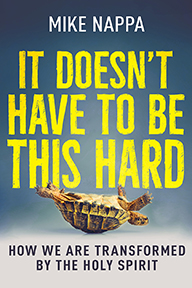A Marketing Team reason for rejection
If you bought this book off the shelf in your local bookstore, chances are good you followed this process when making your purchase decision:
- You saw the words 77 Reasons Why Your Last Book Was Rejected (and how to be sure it won’t happen again!), and that made you curious enough to read the back cover of the book.
- You read the back cover, and that made you curious enough to check out the table of contents.
- You skimmed the table of contents, and that made you curious enough to read part of the introduction.
- You read part of the introduction, and that made you want to read the rest of the book.
- Since you can’t realistically read an entire book inside a bookstore, you decided to pay a few bucks and take the book home to read at your leisure.
Sounds pretty simple, right?
It’s actually a finely-tuned manipulation of your decision-making process, honed by decades of publishing trial and error. When we create the marketing materials for a book, we know the typical reader—whether buying in-store, online, or somewhere else—will almost always follow this sequence.
Guess what? If we fail to arouse a reader’s interest in step 1 above—in the title package (title and subtitle)—we wipe out all our fantastic efforts in steps 2-5. Wasted.
Worse yet? We lose the sale.
Now, put on your Marketing VP hat and re-read that list above. Do you see the high importance of a superb title and subtitle combo for your book?
Yes, of course, 90% of the time the title you give your book in the proposal stage is going to change before it actually hits bookstore shelves. (With so much that depends on it, do you really think my marketing team is going to let a silly old author title a book without input from them?) But that’s irrelevant in the initial publish/don’t publish decision.
What’s relevant is whether or not the title package you provided the editor is strong enough to make the Marketing VP think, “Hey, this is something that’ll get people curious enough to find out more…”
What You Can Do About It
1. Secretly title your book, “Look Inside!”
When you boil it all down, every book title has only one purpose: To get the potential buyer to look inside.
If you can make that happen, and if what’s inside (your content) is valuable to that reader, you’ll make a lot of money writing books. Think about it: more than half of the American book buying public (52%) admits that they “judge a book by its cover,”—the centerpiece of which is that simple little title/subtitle combo. No wonder this matters so much to a Marketing VP!
So, when making the working title and subtitle for your book, don’t choose a boring sentence or phrase that merely explains what your book is about. Instead, focus on how your target reader benefits from your book, and ask “What will make this person ‘Look Inside’?”
2. Make a promise. Evoke emotion.
These are the basic elements of a compelling title for any book. Ignore them at your own risk (or at the risk that my Marketing VP will ignore your book in return).
First, you’ve got to make a promise, either spoken or unspoken, to the reader. This is the great “benefit” that your book will give to anyone who reads your book. (If you don’t understand what that means, go back and re-read Reason #34 earlier in this book.) For example, the promise of this book you hold in your hands is clearly given up front: You’ll discover why editors reject books and how to make them stop rejecting yours. You see it, right?
Second, evoke a significant emotion in the reader. This is where you make the potential book buyer want your book. A suspense novelist, for instance, will want a title that evokes the thrill of being frightened (hence the term “thrillers”). A business writer will want a title that makes just the right amount of greed tingle inside a reader. And this book’s title package (ideally) evoked an emotion of hope or enthusiasm in you.
If you can create titles that make a significant promise and evoke a desired emotion in readers, you are well on your way to winning over my Marketing VP. So, you know, good on you!
3. Avoid confusion in a title, unless it’s deliberate.
If you grab a bite to eat at the Saturn Café in Santa Cruz, California, and at some point need to visit the restroom, you’ll be greeted by two doors. One door is labeled “Us.” The other is labeled “Them.” It’ll be up to you to decide which of those doors leads to the men’s room and which leads to the women’s. That kind of ambiguous titling capitalizes on turning a reader’s expectations into something unexpected. It’s clever, deliberate, and attention-grabbing. A good thing.
Ah, but if you want to visit whorepresents.com on the Internet, it’ll be up to you to decide whether that’s a porn site called “Whore Presents” or a business database site called “Who Represents.” That kind of ambiguous titling is accidental, confusing, and for many, reason enough to give up on the product. A bad thing.
So when it comes time to title your book, pay attention to potential misinterpretations and mistaken impressions. Take care to avoid anything that might confuse the reader or cause someone to misunderstand what your book is about. After all, no reader wants to be led into the “Us” restroom when everything she really needs is in “Them.”
Looking for more? Check out these links:













